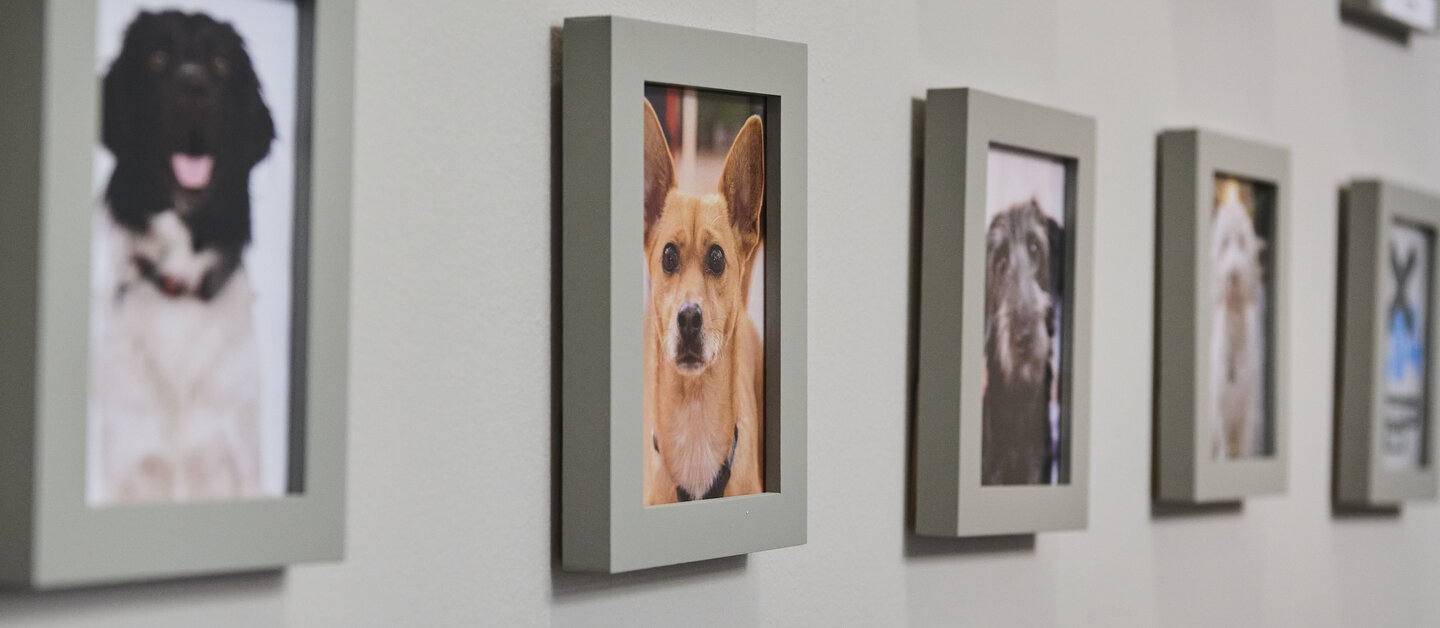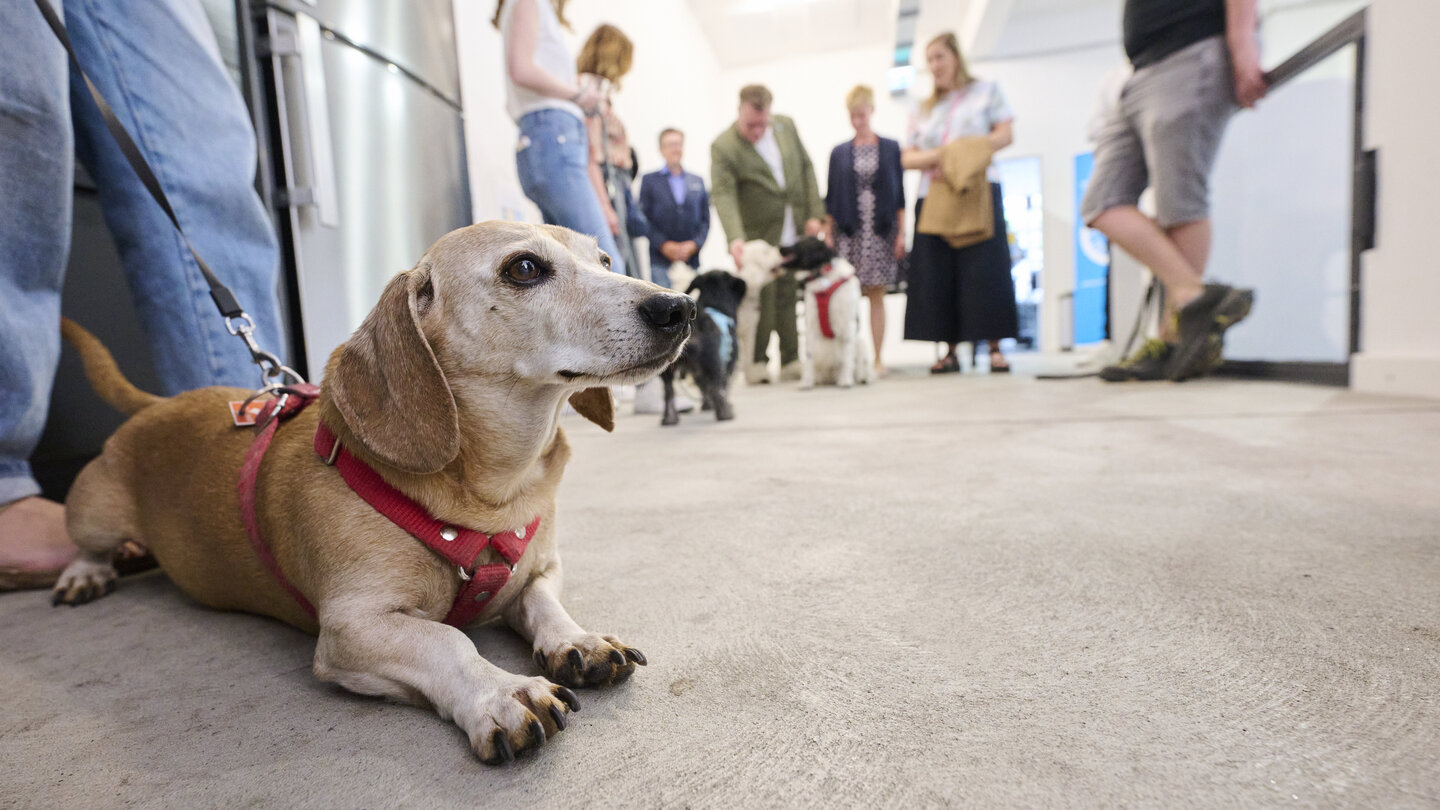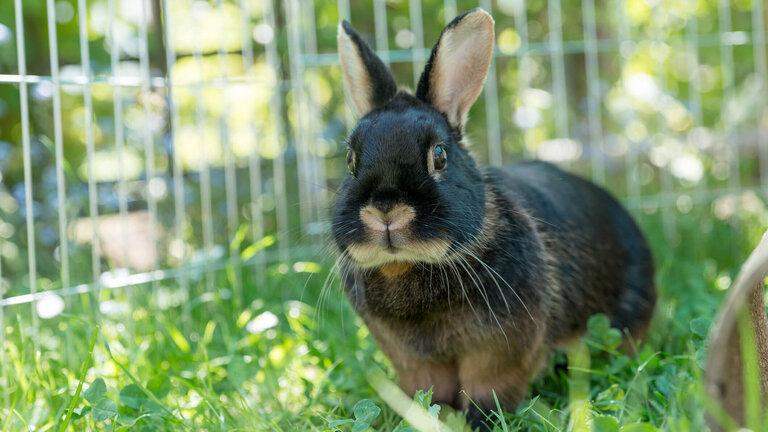Can I take my dog to work with me? That depends on the employer. The German Animal Welfare Federation is promoting dogs in the workplace with its “Colleague Dog” campaign day. This has a positive effect on the working atmosphere and also benefits the animal and animal shelters. Some companies are already setting a good example.


That's why the “Colleague Dog” campaign day is so important Why having a dog in the office is good for everyone from Joscha Duhme

Desks, conference rooms, computers everywhere you look. Perhaps the obligatory coffee machine - that's probably what most offices look like. However, baskets or dog blankets are not to be found on every office floor. This is because dogs that accompany their owners to work are still the exception rather than the rule. At Contorion/STIER in Berlin, things are different. The online store for tools has allowed dogs in its offices since 2016.

Dogs have become an integral part of the office
"An applicant got the ball rolling. She wanted to bring her dog into the office with her, as she would otherwise have found it difficult to have the dog looked after," reports Contorion/STIER Managing Director Tobias Tschötsch. That's why the company "simply gave it a try". Since then, employees have been allowed to bring dogs into the office and today the four-legged friends have become an integral part of the office. They lie relaxed on blankets next to the desks, accompany the team on walks during breaks and happily greet company guests.
"Colleague dog" dispels reservations
Contorion/STIER not only allows dogs in the office, but also takes part in "Collegue dog". This makes it one of many companies taking part in this annual day of action organized by the German Animal Welfare Federation and the food brand Cesar. Together, they want to encourage companies to allow dogs during working hours. On the one hand, the campaign day is aimed at companies that simply want to try out working with dogs. They can also use it to dispel reservations that dogs cause unrest or distract the teams. But companies that already allow dogs on a permanent basis can also set a good example with "Colleague Dog". And every year since 2008, employers from a wide range of sectors have declared their willingness to do so. These include dog-friendly agencies, law firms and engineering offices. But advice centers, social institutions, freight forwarders and car dealerships are also involved. The companies themselves also benefit from having dogs in the office.
Everyday office life with a dog needs rules
Studies show that employees are happier and more motivated when dogs accompany them to work. The animals also improve the working atmosphere. However, none of this works without organization, explains Tschötsch: "We have set up a dog policy to ensure that all dog owners consult with each other before they come into the office. That works really well for us."
Dog-friendly employers help shelter animals
Every additional dog-friendly employer gives animal shelters new hope for the many, many dogs that are currently waiting for a new home. This is because the animal welfare organizations affiliated with the German Animal Welfare Federatin often find that people shy away from adopting an animal despite being very interested in it. "Ultimately, a placement often fails because people don't know how to look after the dog during an eight-hour working day. That's how we came up with the idea for the Colleague Dog Action Day," reports Schröder.
Colleague dog leads to a win-win-win situation
"It's great when private companies allow dogs in the office. This has a great impact on the outside world," says Eva Rönspieß, Chairwoman of the Berlin and surrounding area animal welfare federation. In fact, many animal shelters are also at their limit because countless people have handed in animals that they acquired without thinking during the coronavirus pandemic. As soon as the home office regulations expired in their businesses, they didn't know what to do with them. The animals are spared this fate in any case, as they are allowed to accompany their owners to the office and can do so after a certain amount of familiarization. Ultimately, this results in a win-win-win situation for animals, people and employers - as long as the companies and dog owners implement this wisely and take the animals' needs into account.
Supervisors and all direct colleagues must agree that dogs can come into the office permanently - for example, in the event that someone suffers from an allergy. You should have this contractually agreed. Then even those who don't have a dog themselves can discover the benefits of a four-legged friend and overcome their fear of contact.
Only take your dog to the office if the environment there suits its character. Particularly fearful animals that are afraid of strangers or that "defend" you by barking loudly are not in good hands in an open-plan office. Dogs should therefore be gradually acclimatized to the unfamiliar environment, depending on their individual character.
Dogs need a place to retreat to, such as a blanket, a basket or a transport box that is always open at the front. All colleagues should know that they must respect their peace and quiet and are not allowed to stroke them. Of course, the animal also needs two bowls with fresh water and food. In general, the dog's retreat should be in a draught-free area where there are hardly any people walking and which is air-conditioned in summer. Dogs are also happy if their toys are available.
Take the dog out for a walk during breaks so that it gets enough exercise. Depending on working hours, he should also be given his meals in the office. Conversely, make sure that your colleagues don't spoil him with lots of treats. In addition to a daily ration of food that you bring with you, owners can also provide a small tin of treats that colleagues can give the dog.
All dog owners must insure their dogs against third party liability and provide proof of this to their employer.
If a dog is suffering from diarrhea, vomiting, coughing or other symptoms, it should not come to work with you. It is important that the animal can then rest and does not infect other office dogs.
If everyone agrees, your dog can roam freely in your office space. It should be supervised at all times in corridors or foyers where it encounters visitors or service providers, for example. Be considerate of people who are afraid of dogs.
If there is a communal kitchen, dogs should not have access.
It should go without saying that if a house-trained dog does leave something behind, owners should remove any droppings or urine stains immediately for reasons of hygiene and public image.
If more people or noise are to be expected in the office, for example during parties or repair work, the animals should not come along.
If dogs disrupt work processes or become dangerous when they run around, their owners should take urgent action. For example, they can install accident-proof door grilles on the office door or train with a dog trainer on site before dogs are banned from the office again.
Pet-friendly employers retain staff
percent of employees at pet-friendly companies would recommend their employer to others. In non-pet-friendly companies, the figure is 51.
percent of employees in pet-friendly companies feel that the company promotes their mental well-being.
percent of employees in companies that allow animals plan to stay with the company. In others, the figure is 73.






